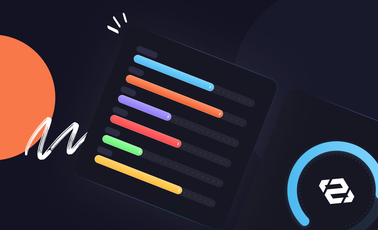No-code for Anyone Planning a Fresh Start
Everybody is talking about coding these days. Coding is what some know-it-all types are offering as a panacea for every problem: Whether you were laid off from your job or are not happy with the general course of your life or failed in your attempt to build a startup, somebody comes out and urges you to learn to code. Coding apparently has become the “break glass in case of emergency” plan for people looking to shake up things in their lives. But why now? What is behind the recent surge in interest in coding?
There are two factors at play here—one of them, a decade-long transformation and the other, a more recent force majeure. The long-term factor is the fact that software is eating the world and people, even the most technophobic among them, are taking note. They understand that software is playing an ever bigger role in their lives. As a result, best paying jobs are often software-related (with a median income of 86,550 in the U.S. and $164,610 for the state of Washington) and developers are so distracted by constant job offers that they have to specify that they are not looking for work.
The high salaries developers command not only make computer science one of the top choices among high school graduates but also attract people who contemplate a fresh start in their careers, thinking that their education led them into a dead-end. Graduates of liberal arts and social sciences are in this group. The value of a humanities and social sciences education is being questioned all over the world. Some governments are actively talking students into pursuing careers more in line with the market demand and some universities are already closing programs such as history and modern foreign languages. Graduates of humanities see the writing on the wall. They are frantically investing in acquiring new skills that will make them relevant in the job market, which nowadays usually means taking up coding.
The second factor at play, the act of God driving the interest in coding, involves the global pandemic and how it changed the way people see the world around them. Governments and institutions are not the only ones second-guessing their previous decisions; one and a half years of pandemic, intermittent lockdowns and working from home have triggered in some people a feeling of “being stuck”. Being stuck in a life they have very little control over and no longer find satisfactory. There are more people than ever questioning their life choices, asking themselves “what if”s, followed by a series of “should have” and “could have” answers. Some of them think that coding will give them problem-solving skills that will help them perform better at their current jobs. For some, coding is the gateway to a better paying job or a remote working arrangement they noticed that they needed during the pandemic. It was this sort of questioning that has caused the recent spike in what was already a high level interest in coding.
Getting into coding is the way to go, but how? Attending online courses on platforms such as Codecademy, Coursera or Udemy is an option. Another option is to join bootcamps, which serves the same goal and comes with the added benefit of networking opportunities. Some ambitious people are taking it to another level and going back to school to study computer science. In short, where there is a will, there is a way, as the saying goes. In a recent tweet, Paul Graham basically advised his followers to follow their hearts in learning how to code and not worry about being perfect in all the aspects. That’s both a sound advice and a realistic take, since coding is not as easy as some bloggers make it out to be: It takes serious investment in terms of time and effort, and comes with significant opportunity cost, i.e. what you could be doing instead, in case you quit before you turn it into a skill you can depend on. In order to monetize that skill, you will have to have a great idea you can implement and find a market for.
Moreover, knowing how to code or even being a veteran of the industry does not seem enough to shield people from the winds of change. Software industry is the most dynamic one that there is; the programming languages in vogue change from time to time and staying ahead of the curve is not easy. You might take online coding courses or even receive a college degree in computer science, but that won’t automatically bring you success as you will need to strive forever to keep yourself up-to-date. Learning to code, despite being one of the best decisions you can make, might be something of an overshoot taking your goals into account. Not only because learning to code takes serious investment and motivation but also because there is another way now.
For people willing to kick off their startup or try their hands in freelancing or boost their problem-solving skills as white collar workers in their existing line of work, no-code technology offers the best of both worlds. No-code puts an end to the predicament of choosing the right programming language. If the end goal is finding a solution to a problem rather than learning to code for its own sake, no-code tools make a lot of sense. They are perfect for people who want to be a part of the software industry despite not being a coder. No-code gives you a head start without the need to invest at least a few months worth of effort before you can start a project of your own.
No-code platforms offer the shortest route to the proof of concept and MVP stages for any idea. Additionally, premium no-code platforms like Peaka go beyond that and can take you all the way through to a fully-functional product. The capabilities they offer easily take care of hosting and security, which could otherwise be a thorn on your side. Then there is the beauty of being able to go back to coding whenever you want, this time focusing on the parts that will bring about the most payoff. No-code affords you the luxury of making coding your hobby rather than a challenge you have to overcome as soon as possible in order to make your life better.




 Please
fill out this field
Please
fill out this field









